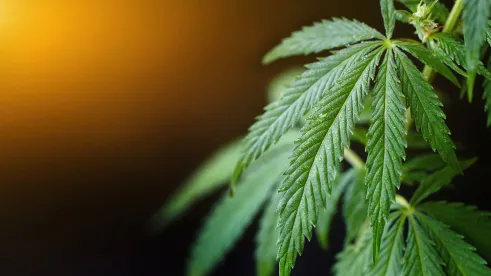As Tribes expand their economic endeavors into the cannabis industry, the growth of cannabis tourism is a natural development. Below, we offer details on how cannabis tourism could support Tribal governments’ economic development efforts. We also provide an update on the status of pending federal legislation that could bring positive impacts to the cannabis industry.
Cannabis Tourism
With the pandemic continuing to take a toll on the tourism industry, many U.S. states and territories are exploring ways to help that industry recover. One potential savior for tourism is cannabis. As states went into varying levels of lockdown in early 2020, businesses deemed “nonessential,” including recreational facilities, gyms, bars, restaurants, etc. were forced to shut down. However, early into lockdown, cannabis was deemed “essential” in California, a designation other states with functional cannabis markets quickly adopted. In total, nearly 30 states, along with the District of Columbia and Puerto Rico, deemed cannabis businesses essential. This triggered some major changes in the industry, including:
-
Aiding in the de-stigmatization of cannabis among consumers;
-
Allowing cannabis businesses to take advantage of mandated business-friendly safety measures such as curbside pickup and home delivery; and
-
Allowing physicians to prescribe medical marijuana through online appointments, making it easier for patients to obtain medical marijuana cards.
With all of these changes, cannabis tourism has developed into a potentially rewarding industry that Tribal governments might be able to cultivate as part of efforts to recover economic losses suffered by their tourism and other businesses
What is Cannabis Tourism?
Cannabis tourism is most generally characterized as a destination-based industry that attracts tourists because cannabis is legal in that location. But the industry can take many forms. For example, tourists might visit a dispensary to learn more about the development of cannabis crops, stay at a “bud and breakfast,” tour a cannabis farm or growing facility, or dine at a restaurant with cannabis-infused dishes. Cannabis tourism can also have a positive knock-on effect for many other Tribal businesses.
How can Tribes Participate?
Interested Tribes can create specific cannabis-centered tourist destinations. One example is opening a farm or growing facility that is similar to a wine vineyard, where consumers can tour the facility and sample the products. This concept would serve multiple functions in that the farm would supply dispensaries while providing a tourism destination that would benefit hotels, restaurants, and the local economy.
Another route is to add cannabis tourism into existing tourism infrastructure. Tribes can take advantage of their land base and natural resources by offering cannabis hikes or camping expeditions, where participants are able to experience nature while partaking. Tribes with resort properties can offer CBD-infused massages at their spa, include CBD and hemp products at their gift shops, or offer travel packages designed for cannabis tourists. The idea behind this approach is to utilize the Tribe’s existing tourism infrastructure to provide new cannabis tourism options.
Federal Cannabis Legislation Update
The following is an update on pending federal legislation that would impact the cannabis industry. Summaries of previous cannabis legislative developments are provided in past articles..
-
The Cannabis Administration and Opportunity Act, S. ___ has not yet been introduced in the Senate. The bill would completely remove cannabis from the controlled substances list under the Controlled Substances Act and would allow states to implement their own laws regarding cannabis without fear of federal intervention. Senators Schumer, Booker, and Wyden published a discussion draft of the legislation on July 14, 2021, and the deadline for public comments was September 1, 2021. Once the legislation is finalized it will be referred to committee for continued review and revision.
-
The MORE Act of 2021, H.R. 3617, was introduced in the House of Representatives on May 28, 2021. The Act would end the criminalization of cannabis at the federal level retroactively and going forward. Federal cannabis arrests, charges, and convictions would be automatically expunged at no cost to the individual. Under the MORE Act, individual states would determine whether to criminalize cannabis. The Act would also create the Office of Cannabis Justice to oversee the social equity provisions in the law. The Act has been referred to several House subcommittees and was most recently marked up by the House Judiciary Committee on September 30, 2021.
The Democrats control both the House and the Senate (with Vice President Harris acting as the tie-breaking vote in the 50-50 Senate) but passing any cannabis legislation in the current Congress might prove difficult. The filibuster rules require 60 votes for a bill to pass the Senate, so any cannabis legislation would need relatively strong bipartisan support.
The future of federal cannabis law remains unclear, but Tribes interested in the cannabis industry can start taking steps now to establish the necessary framework to support this new area of Tribal economic enterprise.





 />i
/>i
